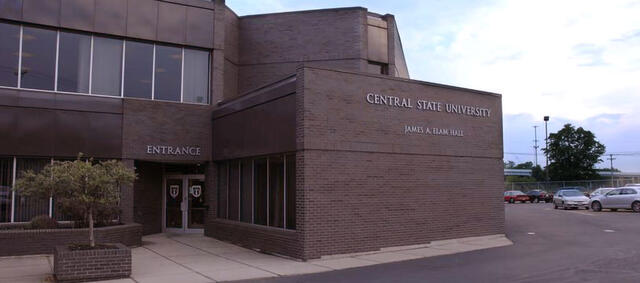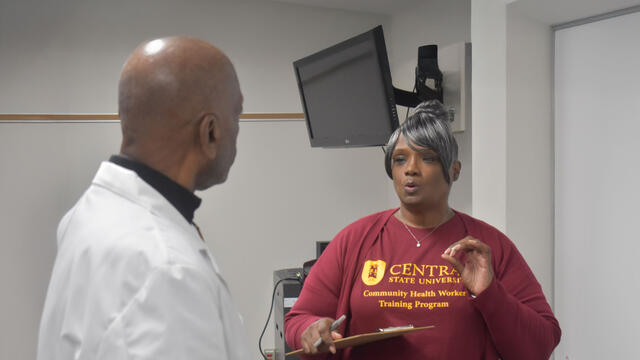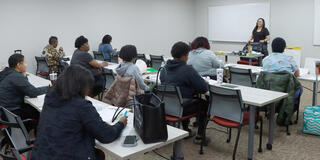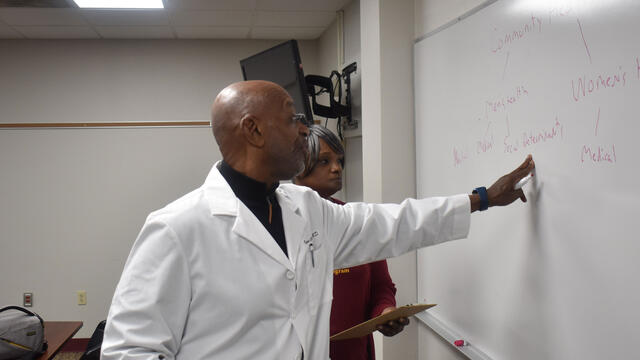
Why Are CHWs Important?
Community health workers (CHWs) are dedicated frontline public health ambassadors and health educators, deeply connected to the communities they serve. They empower individuals to overcome unmet social needs, foster health, and strengthen the community's capacity for a better future.
Are you
- 18 years old or older?
- equipped with at least a GED or High School Diploma?
Do you
- love the opportunity to actively connect with and engage with your community?
Can you
- attend a 13-week in-person class on Monday, Tuesday and virtual on Thursday from 6-9 pm?
- complete 130 hours of hands-on Practicum training within 6 months after course completion?
I discovered a program that aligns with my passion for helping and advocating for others. This program will provide me with the education I need to gain a deeper understanding of how to address health disparities in different populations. Additionally, it will equip me with the skills to manage health and wellness effectively. Being able to gain extra knowledge and resources on educating individuals on health issues and teaching them strategies to improve their well-being is goal.
Next Cohort February 3, 2026
For additional information, email communityhealthworker@centralstate.edu

“Completing the Community Health Worker (CHW) training has deepened my understanding of how social, cultural, and economic factors influence health. Through this program, I have developed the skills to serve as a bridge between individuals, families, and the healthcare system—helping to promote equity, access, and empowerment within my community.”
CSU Community Health Worker Philosophy
As an 1890 Land-Grant Institution, Central State University Extension's mission is to become a premier community-based outreach and educational program leader that provides a holistic Extension approach to improve the overall conditions facing families in rural and urban communities and address agricultural issues in rural and urban locations. As a part of that mission, our Family & Consumer Science programs provide education in the areas of health and nutrition, childhood obesity, family relations, and financial literacy. These programs impart knowledge and provide practical applications to build stronger families and communities as well as address issues related to families and communities such as obesity, financial readiness, infant mortality, and degradation. The Community Health Worker Training Program has become one of the leading programs within the Family and Consumer Science program.
Program Philosophy: Engage a diverse community of people to enhance their skills and expand their knowledge of available resources by training them in public health, and nutrition education, leading to a more equitable healthy society.
Program Objectives: While this training has specific learning outcomes which are described below, the following Central State University's institutional learning outcomes will also be reinforced throughout the course through activities and assignments:
- Effective communication skills (written and verbal communication)
- Critical thinking skills
- Application for the scientific process
- Awareness of social and cultural factors affecting learning
- Competency in field of study CHW Training Program objectives:
- Add or enhance professional development.
- Public health awareness
- Community engagement
- Care coordination
- Advocacy teaching strategies
- Student learning is assessed using both formative and summative assessment methods.
The learning outcomes of the course embrace didactic clinical practice and non-clinical practice as well as communal and non-communal exercises. Instruction may also include other instructional tools, aids or supplements as are available. The CHW Training Program is structured to meet the instructional requirements set forth in Rule 4723-26-13 of the Ohio Administrative Code (OAC).

Each practicum experience will be conducted at a designated local community partner site. Central State University Extension is committed to assisting students in identifying and fulfilling the necessary community-based practicum requirements with qualified local hospitals, healthcare providers, and nonprofit organizations.
Some of those partners include:
- West Care, Inc
- East End Community Center
- Dayton Food Bank
- Montgomery County
- Office of Re-entry
- Dayton Equity Corporation
- CP Health
- Miami Valley Housing Opportunity
- New Hope Villa
- Key Terrace
- YWCA
- Dakota Center
- Christian Life Center
- Celebrate Recovery
- Good Neighbor House
- Omega CDC
- Community Impact Center
- Riverscape Career Tech High School
- Engage High School
- Target Dayton
- Kroc Center
- House of Bread

“During my training, I learned to provide health education, advocate for clients, and connect people to essential services and resources. I also strengthened my communication, cultural competency, and outreach skills—key tools for building trust and supporting positive health behaviors.”
